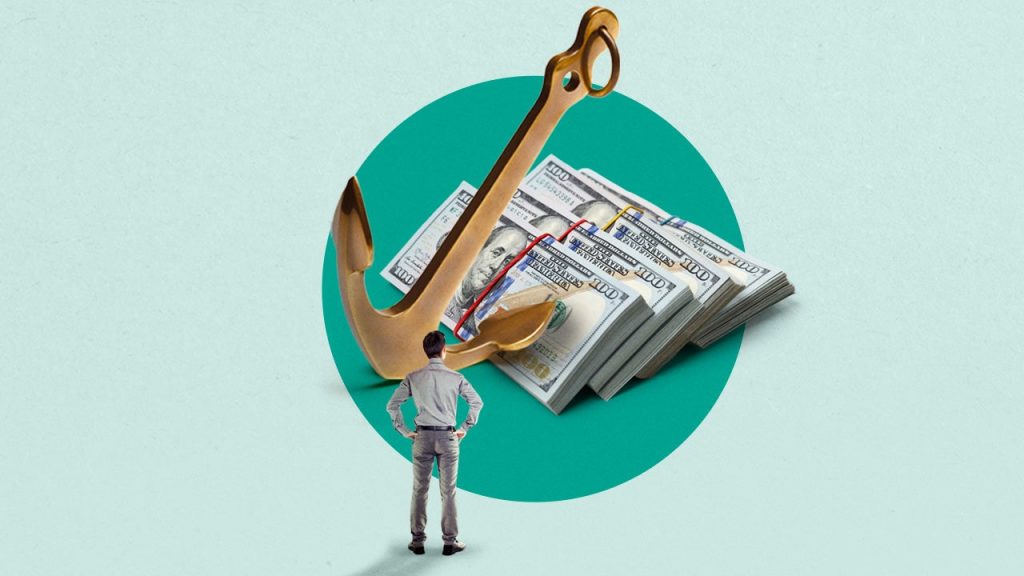Key takeaways
- Money market accounts typically provide higher interest rates than traditional savings accounts and are federally insured, offering both flexibility and security.
- These accounts are great for short to medium-term savings goals, such as building an emergency fund or saving for near-term expenses.
- APY rates, fees, and minimum balance requirements vary by institution, so it’s important to compare options before choosing an account.
A money market account is a savings tool that combines competitive interest rates with greater flexibility than traditional savings accounts. Money market accounts generally offer additional access to your funds through checks, debit cards and electronic withdrawals, making it easier to manage your money when needed.
Additionally, money market accounts are one of the safest ways to save your money. They’re generally federally insured — by the Federal Deposit Insurance Corporation (FDIC) if your account is with a bank, or by the National Credit Union Administration (NCUA) if it’s with a credit union. This insurance protects your deposits up to the standard limit, ensuring that your money remains secure even in the unlikely event of a bank failure.
However, money market accounts may have limits on the number of withdrawals per month, and aren’t intended to be used as a replacement for a checking account. They may require bigger minimum deposits and balances compared to savings accounts.
It’s also important to note that money market accounts are different from money market mutual funds, which are securities and not deposit accounts. What’s more, money market mutual funds aren’t insured by the FDIC or NCUA and may pay higher interest rates than money market accounts.
How money market accounts work
Money market accounts generate interest on your balance — typically calculated daily and paid monthly.
Banks and credit unions often quote your rate as an annual percentage yield (APY), which helps you gauge your potential earnings and compare different accounts more easily. Money market accounts also have a variable rate, which means your earnings can rise or fall if market rates change. So, for example, if the Federal Reserve adjusts its target interest rate, your APY may follow suit. Although these accounts generally offer competitive rates, they’re still deposit accounts rather than high-risk, high-reward investment vehicles.
As for accessibility, you can often access your money via checks, debit cards, or electronic transfers, but withdrawals are typically limited to six per month under federal guidelines. Some accounts also require a higher minimum balance to avoid fees. If you’re looking for a safe place to earn more than a standard savings account while retaining some flexibility, a money market account can be a solid option.
Pros and cons of money market accounts
Advantages
- You can earn interest: Right now, the best money market accounts pay around 4 to 5 percent annual percentage yield (APY), even outpacing inflation.
- Deposits are insured: Your money is insured for up to $250,000 per account owner, provided the account is at a bank that is a member of the FDIC or credit union that is a member of the NCUA.
- Cash is accessible: Your account often comes with a debit card and/or physical checks.
Disadvantages
- Large minimum deposit requirements: Money market accounts may require a larger deposit than traditional savings accounts either to open the account or to earn the top APY.
- Lower yields than other bank products: Certificates of deposit (CDs) may pay a more competitive yield. Investors who are okay with taking on more risk can also achieve higher payouts from stocks and bonds.
- Restrictions on withdrawals: While you might write checks or use a debit card to move money out of your money market account, there are limits because these accounts are not primarily built for a high volume of transactions.
Compare money market account offers today
Achieve your savings goals with a money market account that offers a high yield and check-writing privileges.
Compare rates
Are money market accounts safe?
Money market accounts at federally insured banks are very safe, as they are protected by the FDIC in the event that a bank fails.
The FDIC insures up to $250,000 per depositor, per account ownership type at each bank. This means that if you have $200,000 in a money market account and $50,000 in a checking account with the same bank, all of your money is protected. Anything over this amount would not be insured (unless it falls into a different ownership category, such as a jointly owned account).
For federally insured credit unions, the funds in a money market account are insured by the NCUA, which has the same rules as the FDIC for how much of a depositor’s money is protected.
How to choose the best money market account
Finding the right money market account involves more than just looking at interest rates. Below are key considerations to keep in mind when comparing money market accounts.
- APY (Annual Percentage Yield): Look for accounts offering the highest money market account APYs to maximize your earnings. APY reflects the total interest you’ll earn over a year, including compound interest. Online-only banks often provide higher APYs than traditional banks and credit unions.
- Minimum balance requirements: Check whether the account’s balance requirements align with your financial situation. Some accounts require large balances, such as $1,000, to avoid fees or earn the advertised yield.
- Fees: Review the account for any fees that could eat into your earnings, such as monthly maintenance fees, excess withdrawal fees, transfer fees, inactive account fees, or early closure penalties if the account is closed within three months of opening.
- Account accessibility: Consider how you can access your funds. Some accounts offer checks, debit cards, or both, while others may limit your withdrawal options. Additionally, check how many withdrawals are allowed per statement cycle, as some banks impose stricter limits.
- Mobile and online banking features: Check whether the account offers a user-friendly online banking platform or mobile app for managing your funds. Features like mobile check deposit, real-time balance updates, and account alerts can add convenience depending on your situation.
What is the difference between a money market account vs. other accounts?
Money market account vs. checking account
The best money market account rates are much higher than typical checking account rates. Money market accounts may offer check-writing privileges but these accounts aren’t designed to be used like checking accounts. A former federal mandate, Regulation D, limited withdrawals from savings and money market accounts to no more than six per month, which many financial institutions still impose.
Money market accounts are best for individuals who want to earn higher interest while maintaining occasional access to their funds. Checking accounts, on the other hand, are better suited for those who need unlimited transactions and direct access to their money for everyday spending.
Money market account vs. savings account
Savings accounts and money market accounts have more in common than not: They pay interest, and they are designed to keep you saving. But there are a few key differences. Money market accounts may have higher minimum balance requirements. With a money market account, you can also get checks and/or a debit card; it’s less common for a savings account to come with this level of liquidity.
Both savings accounts and money market accounts are excellent tools for building an emergency fund or growing your savings, especially in today’s economy where combating inflation is important. The best choice depends on the specific features offered by the institution, as many perks overlap between the two accounts.
Money market account vs. CD
A certificate of deposit could pay you a more competitive rate than a money market account, but your money is more liquid in a money market account than in a CD. If you are deciding between a money market account and a CD, evaluate what savings goals you have and how much access you’ll need to the funds. The liquidity of a money market account might make it a good option for shorter-term needs and goals.
CDs are better suited for individuals who can commit their funds for a specific period to secure a higher, fixed rate of return.
What is the difference between a money market account and a money market fund?
While money market accounts and money market funds have similar names, they are very different. Most notably, money market funds are considered an investment because they are a type of mutual fund. They are not covered by FDIC insurance, and you could lose your principal. Here is a breakdown of their primary differences.
|
|
Money market account |
Money market fund |
|
Purpose of account |
For your emergency fund or shorter-term savings goals. |
Often for individual investors seeking a parking spot for their cash. |
|
How to invest |
Deposit money at a financial institution online or in person. |
Buy shares at a brokerage, bank or mutual fund company. |
|
Accessing funds |
Can withdraw money up to six times per month. (This limit can vary by bank.) |
You have ready access to cash, typically within one trading day (or business day). |
|
Insurance coverage |
Up to $250,000 per bank or credit union customer |
No FDIC or NCUA insurance (even when you buy them through a bank) |
FAQs
Who should choose a money market account?
A money market account is ideal for people who want to grow their savings while keeping access to their money. A money market account can also be a tool for those who want to store their emergency funds or save for something in the near future, like a down payment or a trip.
Do you pay taxes on a money market account?
Yes, the interest you earn on a money market account is considered taxable income in the United States. According to the Internal Revenue Service (IRS), most interest that you receive or that is credited to an account that you can withdraw from without penalty is taxable income in the year it becomes available to you. This includes interest on bank accounts, money market accounts, certificates of deposit and corporate bonds.
If you receive payments of interest totaling over $10, you should receive a Form 1099-INT reporting those payments. The IRS states you must report all taxable interest on your federal income tax return, even if you don’t receive a Form 1099-INT.
Is there a penalty for withdrawing money from a money market account?
It depends on the institution and the account terms. Both banks and credit unions offer money market accounts, and while the Federal Reserve no longer limits withdrawals to six per month, many institutions still enforce this practice.
If you exceed the allowed number of withdrawals, you might face fees or have your account reclassified. It’s important to check the specific terms of your money market account, whether it’s held at a bank or credit union.
What is the highest-paying money market account right now?
At the time of this writing, Zynlo Bank offers one of the highest-paying money market accounts with an impressive 5.00 percent APY — more than seven times the national average money market account deposit rates. Other top money market account competitors include Quontic Bank at 4.75 percent APY, and Vio Bank, offering a 4.56 percent APY.
Bottom line
Money market accounts are a safe option for storing shorter-term savings or an emergency fund. Unlike money market funds, these accounts are generally protected by federal insurance and come with virtually no risk of losing your principal.
Make sure to shop around for the best rates and look out for minimum balance requirements before settling on a money market account.
Read the full article here










